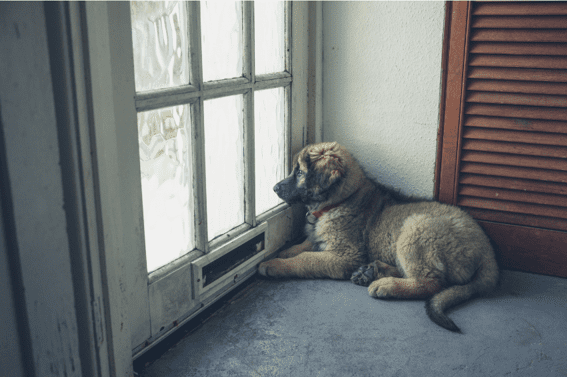The Future Of Dog Ownership.
It looks as if the future of pet ownership may be on the cusp of significant changes. The population of pet dogs has been growing rapidly, particularly since the period of covid pandemic – a time when many more people opted to get a dog. There are many aspects to consider when thinking about how pet ownership might change in the coming decades. Holiday4Dogs delves deeper into the question of just what the future of dog ownership might look like.
Just this month (Feb ’25), the Independent reported on recent research which revealed the UK has more than 4 million dogs than previously estimated. This new data takes the population figure of pet dogs in the UK to over 13 million. That’s a LOT of dogs. There’s no doubt that the pandemic rush of people buying new puppies fuelled an already booming pet industry and altered the face of dog ownership both here and abroad.
Pandemic pups – a pivotal moment in the history of dogs as pets.
During the Covid-19 pandemic and subsequent lockdowns – a staggering number of people became first time dog owners. With millions of people forced to work from home, many began considering the benefits of owning a pet. Few really thought about the long term prospects of keeping a pet once work patterns changed.
As a result, dogs homes were flooded once people began returning to work. Even today, the knock-on effect of pandemic puppies is still rippling within animal welfare charities. In addition, the Royal Veterinary College established that owners of ‘pandemic puppies’ felt the greatest burden of dog ownership.
Combined with inexperienced first-time dog owners, lack of socialisation and training – behavioural problems amongst pet dogs have been more noticeable and profound. The findings indicate that more needs to be done to promote responsible dog ownership. Ideally, before dogs are acquired in the first place.
Pets redefined.
Since the pandemic, pets have been regarded very much as part of the family. This was happening even before this. Humanisation of pets is nothing new and has been a growing trend – particularly in the recent decades as far we we can see. But the pandemic really encouraged people to regard pets as valued members of their families, with the same rights and privileges.
Many dog owners now vehemently protect their pet’s right to freedom (off-lead?) and to access all public spaces. They are pampered and coddled, with toys and treats and can even go to doggy spa’s. There are vast choices of fashionable clothing, gadgets, toys and accessories that would befit any human child.
Absolutely, the welfare of pet dogs is a highly important issue. In fact, there are still critical welfare gaps that need filling. However, many believe humanisation of pets in itself, creates as many welfare issues as it addresses.
Many believe treating animals like children ( unruly children !) does animals a disservice as unique species. Owners expect their dog to be allowed everywhere. Many more businesses have become pet friendly in recent years, including restaurants and cafes where, historically, dogs would not be allowed for health reasons.
But. Are domestic dogs comfortable with this situation? Many dogs find the busy, noisy, chaotic lives of people hard to handle. Will the pendulum swing back to dogs being coveted for their unique canine characteristics, rather than fur babies? Who knows?
Could there be stricter rules and regulations on dog ownership?
Many, like the RVC, believe there should be. With so many pet dogs in society – a significant proportion of which have poor social and training skills – many feel there needs to be more interventions to emphasise the importance of responsible dog ownership. We are already seeing more restrictions on dogs in public spaces in the UK. Councils are frequently adopting Public Space Protection Orders, to ban dogs from areas such as public parks, beaches and even car parks.
This is largely as a result of too many people allowing their dogs to foul public spaces and creating tension by walking too many dogs at once. Indeed, in many towns and cities – especially in tourist areas, the numbers of people visiting with a dog has become vastly more noticeable. Will there be less places where dogs are allowed to be walked? What about stricter lead laws?
Will it become more expensive to own a dog?
Despite rising profits seen in the pet care industry, it’s already becoming more expensive to own a pet. Pet food, insurance and veterinary care is soaring in cost. This may result in more people seeking smaller pets, exotic pets, or smaller breeds of dog.
The cost of living crisis in the UK has undoubtedly hit many pet owners hard and the situation doesn’t look as if it will improve any time soon. In the future, this may impact on whether people choose to have a pet, or keep one they already have. It is already happening with surplus dogs in the UK with nowhere near enough homes to go around.
Will there be a better understanding of animal behaviour and welfare?
Despite a rise in canine behavioural issues, there has been a vast swing and a better understanding of canine behaviour and positive, motivational, training techniques – even among novice dog owners.
Along with this knowledge, a better understanding of social responsibility towards, not only our pets, but fellow human beings – should develop. There will hopefully be better products, services and interventions and regulations to reduce negative welfare outcomes amongst companion pets.
Will dog owning become more sustainable?
Consumers are demanding more sustainability when it comes to their purchases and it is no different when it comes to pet care. With the global rise of dog ownership, dog food production poses a significant climate impact. And, again – humanisation has increased this with the demand for dog food containing more meat.
Reducing the impact on the environment could be achieved by more use of home cooked pet food, plant based ingredients and re-cycled packaging. Sourcing sustainable products like toys and chews is also important.
Neutering pets prevents the burden of over population of the planet and can help with the health and welfare of individual animals.
Will we just not own dogs anymore?
According to the RSPCA more than a quarter of people could decide to get a robot pet. As artificial intelligence improves, many people may be encouraged to replace the human-animal bond with a robot. This is not something the RSPCA broadly advocate, but they do acknowledge they can be beneficial for people with dementia, for example.
However, there is the danger this could diminish the importance of animals and they are not a replacement for responsible pet ownership. Technology could be one of the ways we redefine our relationships with animals. The RSPCA believe that animal welfare is at a crucial crossroads. As such, they have launched a new poll Animal Futures – The Big Conversation.
Technology and pets.
Technology could be one of the ways we redefine our relationships with animals. The way technology is advancing, means there are likely to big changes in the way we care for and breed animals. Precision breeding means animals can be ‘created’ in ways that have never been seen before – think more ‘designer’ pets.
AI monitoring systems will be able to track and monitor animals and make decisions about their care. This might be of benefit in terms of breeding animals that are resistant to disease. However, it could have negative impacts where animals – particularly farm animals – are treated, or culled, without human supervision. It is important that new technologies involved in animal care, maintain strict aspects of welfare and safety.
Final thoughts.
It takes all of us to create a better future for animals – including our beloved pets. It’s important we think very carefully how our relationships with animals develop and flourish in the future and their well being must always be at the forefront.








